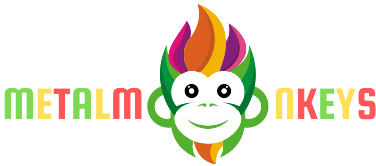A Homeowners Association (HOA) serves as the financial steward of a community, and its ability to maintain long-term financial health is crucial for its residents’ well-being and property values.
A financially stable HOA can avoid special assessments, fund necessary repairs and improvements, and plan confidently for the future. Achieving this requires a strategic, disciplined approach that goes beyond simply collecting dues.
By implementing smart financial practices and leveraging expert advice, an HOA can build a robust financial foundation that benefits the entire community for years to come.
Create a Realistic and Proactive Annual Budget
The foundation of a financially healthy HOA is a well-crafted budget. An annual budget should not only cover day-to-day operating expenses but also allocate funds for future capital projects.
It’s essential to be proactive by anticipating upcoming costs, such as landscaping contracts, utility increases, and insurance premiums.
A realistic budget, built on historical data and future projections, ensures that the association is prepared for expected expenditures and avoids being caught off guard by rising costs.
Ensure Consistent and Timely Dues Collection
Regular and timely collection of association dues is the lifeblood of an HOA’s financial stability. The board should have a clear, consistent, and well-communicated policy for collecting dues and handling delinquencies.
This includes sending out timely reminders and, if necessary, enforcing late fees. A firm but fair approach to collections ensures a predictable cash flow, which is vital for covering operational costs and funding reserves.
Gain Expert Insight from Reserve Advisors
Planning for the future is the most significant challenge for many HOAs. Engaging professional reserve advisors is a smart investment that provides an accurate roadmap for future financial needs.
These experts conduct a detailed study of the community’s assets, such as roofs, roads, and amenities, to estimate their useful life and replacement costs. Their report helps the board set appropriate reserve contributions, preventing large, unexpected expenses and the need for special assessments.
Adopt Diligent and Transparent Bookkeeping
Accurate and transparent bookkeeping is essential for maintaining trust within the community and making informed financial decisions. All financial transactions, from dues collected to invoices paid, should be meticulously recorded and easily accessible to the board.
Regular financial statements, including balance sheets and income statements, should be prepared and reviewed. This level of diligence ensures accountability, helps the board track spending, and allows for clear communication of the association’s financial status to residents.
Invest in Preventative Maintenance
One of the best ways to control costs and protect assets is through preventative maintenance. Proactively maintaining community assets, such as regular roof inspections, pavement sealing, and HVAC servicing in common areas, can extend their lifespan and delay the need for costly replacements.
A small investment in preventative care today can save the HOA a significant amount of money in the future, making it a critical component of a sound financial strategy.
Review Contracts and Negotiate with Vendors
Managing expenses is just as important as managing income. The HOA board should regularly review all vendor and service contracts, such as those for landscaping, waste removal, and security.
By soliciting bids from multiple companies, negotiating terms, and ensuring contracts are renewed on a competitive basis, the board can often secure better rates and higher-quality service.
This practice ensures that the association is getting the best value for its money, thereby contributing to its financial health.
